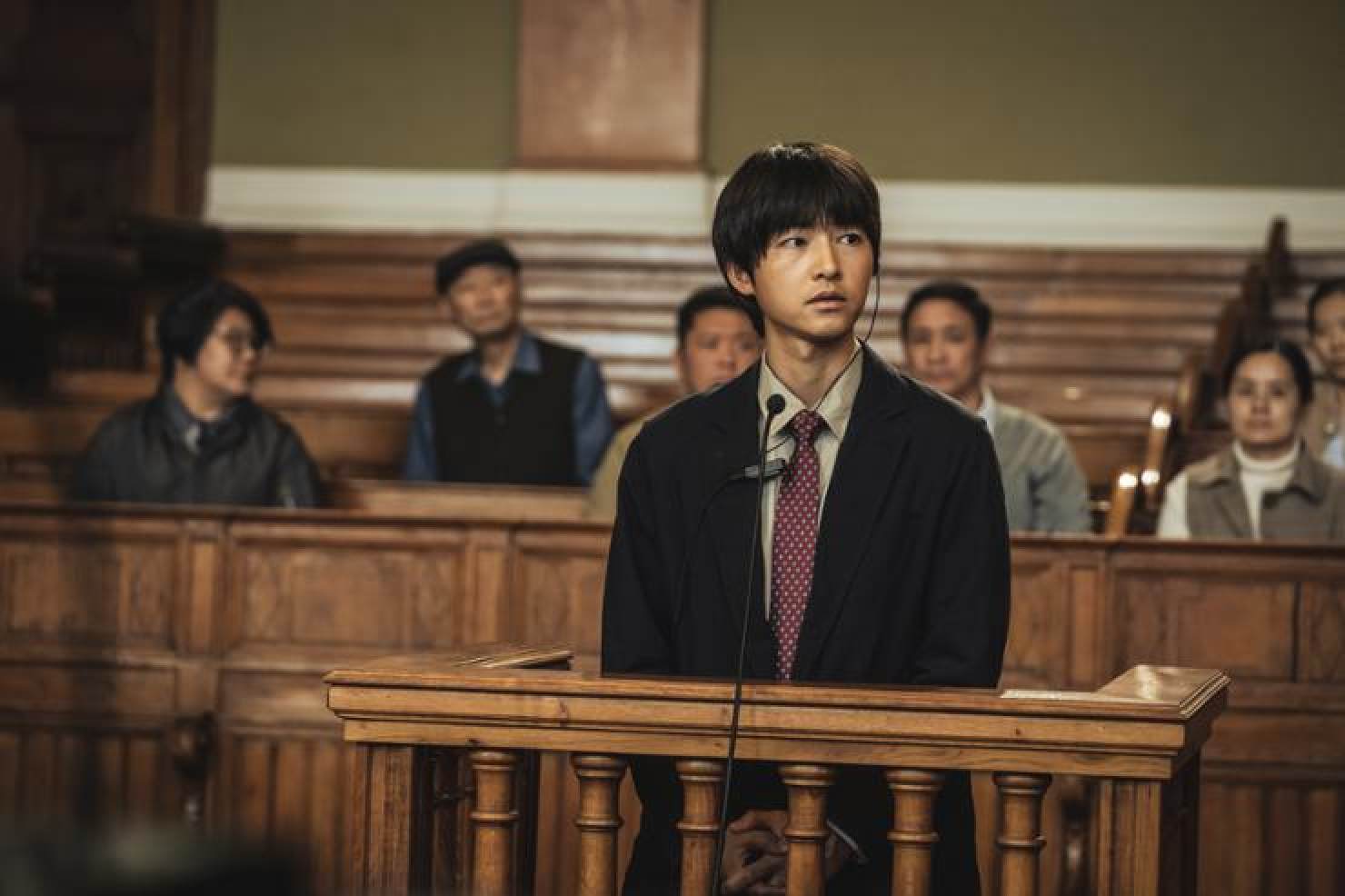
Song Joong-ki on why Netflix’s My Name Is Loh Kiwan, about a North Korean defector, is ‘a healing movie’ and why starring in it ‘felt like fate’
- Song Joong-ki will return to Netflix alongside Choi Sung-eun in a movie adaptation of a novel about a North Korean defector struggling to survive in Belgium
- The Korean actor talks about why the movie offers hope despite its premise, why he took the role after turning it down, and acting in the North Korean dialect
By Lee Gyu-lee
Actor Song Joong-ki is returning to Netflix with the new original movie My Name Is Loh Kiwan, in which he will portray the titular character. This comes three years after his appearance in the platform’s sci-fi blockbuster Space Sweepers.
The melodrama, adapted from Cho Hae-jin’s novel I Met Loh Kiwan (2011), centres on a North Korean defector named Loh Ki-wan (Song), who arrives penniless in Belgium, seeking to obtain refugee status. As Loh struggles to survive in the foreign land, he meets a woman named Mari (Choi Sung-eun), who has lost all hope.
Despite their initial bitter encounter, the two characters gradually grow closer, bringing unexpected changes to each other’s desolate lives.
“My Name Is Loh Kiwan depicts the life of Ki-wan, who embarks on a journey to Belgium with the last glimmer of hope in his life when he feels completely cut off. The film captures his arduous journey as he struggles to survive in Belgium at any cost,” Song says.
“Within that [journey], a lot happens and he experiences healing. So I would like to describe our work as a healing movie.”

“I initially joined the project as the writer, and later, I was given the opportunity to adapt it into a film and direct it. I really enjoyed the original novel and felt it was a very good opportunity to debut with such a beautiful movie,” Kim says.
“I wrote this piece thinking of Song. I saw Loh as someone with a resilient spirit, like a blooming flower in a mud puddle.
From Joint Security Area to 6/45, top 10 South Korean films about North Korea
“Throughout his extensive career as an actor, Song has portrayed a diverse range of characters, but there’s a facet of him that shines uniquely in our work. He can evoke sympathy, prompting viewers to want to embrace him, yet at times, he can also send chills down your spine, leaving you transfixed. It’s these multifaceted performances that will captivate the audience,” Kim adds.
Song says he initially turned down the film, but eventually was drawn to its refreshing plot.
“When I received the script about six or seven years ago, I declined it … I couldn’t connect with the story at first. However, as time passed, I found myself troubled by the fact that the production hadn’t materialised yet, as it was indeed a remarkable piece,” he says.

He adds that his first attempt at acting in the North Korean dialect was a satisfying experience.
“As an actor, it was a challenge I had long wanted to take on. I accepted the role because I personally sought to push my boundaries and explore new territory,” he says.

